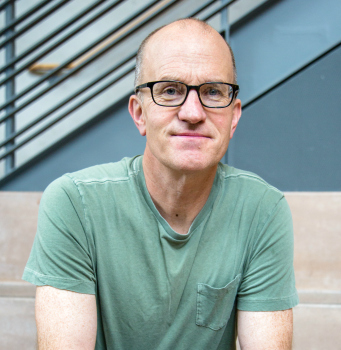Campus News
Biologist Doug Kellogg receives Outstanding Faculty Award
Doug Kellogg, professor of molecular, cell, and developmental biology, has received the 2018–19 Outstanding Faculty Award from the Division of Physical and Biological Sciences.

Doug Kellogg, professor of molecular, cell, and developmental biology at UC Santa Cruz, has received the 2018–19 Outstanding Faculty Award from the Division of Physical and Biological Sciences. The annual award is the division’s highest honor for faculty achievement, recognizing combined excellence in research, teaching, and service.
“Doug Kellogg is a worthy recipient of this award. He is an extraordinary faculty member and leader whose vision, fairness, and research achievements have helped make our campus a leader in biomedical sciences,” said Paul Koch, dean of physical and biological sciences, in a letter announcing the award.
Kellogg’s research focuses on the mechanisms that control cell growth and size, an area of cell biology that remains poorly understood. Disruption of the normal regulation of cell growth is a hallmark of cancer. Deciphering the cellular signaling pathways that control cell growth and size will help researchers to develop new therapies for treating cancer and other diseases. Earlier this year, Kellogg was awarded a prestigious 5-year Maximizing Investigators’ Research Award from the National Institutes of Health to support his ongoing research in this area.
A talented and devoted teacher and mentor for students and postdoctoral scientists, Kellogg is also a champion of diversity. His lab has hosted 24 undergraduate, post-baccalaureate, and graduate scholars from UCSC’s NIH-funded STEM Diversity Programs. Currently, three graduate students and two undergraduates in his lab are from underrepresented groups.
A major contributor to his department and division, Kellogg has served in many important leadership roles over the years. These include serving as chair of the Department of Molecular, Cell and Developmental Biology, director of the department’s first NIH Training Grant, and director of the Program in Biomedical Science and Engineering. He is currently associate dean of biology in the division.
“His research, teaching, and service have all been exceptional, and his efforts to launch and support the umbrella graduate Program in Biomedical Sciences and Engineering has transformed training in this critical portion of the campus’ intellectual portfolio,” Koch wrote.